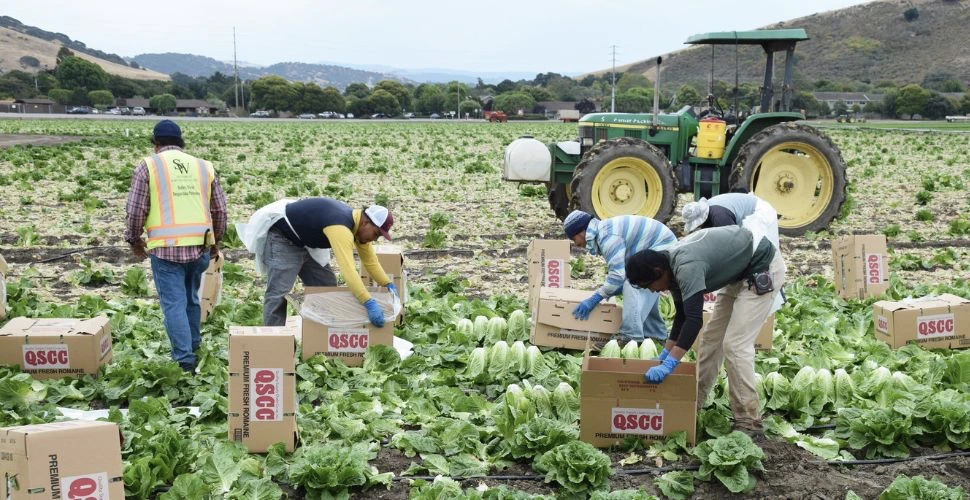Migrant workers in U.S. to receive protection when reporting labor abuses

Under new guidance announced by the U.S. Department of Homeland Security migrant workers with insecure immigration status or under temporary work visas have are able to be temporarily protected from the risk of deportation if they report workplace abuses, including forced labor and exploitation.
A win for migrant workers
This is a significant win for migrant and worker rights groups and activists who have worked tirelessly for better protections for workers against deportation and job losses if they speak out against abusive employers.
Though all workers regardless of migration status should benefit from workplace protections under international human rights law, the reality is that the risk of immigration related retaliation prevents workers from coming forward, exemplified by research conducted by Human Rights Watch.
This new process can provide undocumented workers and those on temporary work visas with a preemptive shield against immigration-related retaliation and workplace exploitation. Although some existing programs can grant nonimmigrant status to victims of crimes, such as U visas and T visas, the efficacy of these programs is significantly hindered by coverage limitations, caps, and years-long backlogs, as Human Rights Watch documented in 2018.
Now, workers who assist with investigations of workplace abuses by federal, state or local labor agencies can apply for an “expedited discretionary grant of deferred action”. This means that both the worker reporting abuse and the victim would be protected from immigration enforcement for at least two years.
Migrant worker exploitation in the U.S.
Kanti is a survivor of trafficking and forced labor. As part of Freedom United's campaign calling on California to regulate foreign labor contractors (FLCs) and better protect migrant workers from exploitation and trafficking, she shared how workers' immigration status can be used by unscrupulous employers to perpetrate exploitative labor practices that can even amount to forced labor:
Once I was in California, I was told I would have to work six months for free to pay for my visa. I had to work day in and day out, cleaning the house, washing the car, doing the laundry, taking care of the children, and looking after my employer's huge yard.
Despite our best efforts, Governor Newsom vetoed AB364 giving reasons which expose a lack of understanding of what it takes to fight forced labor of temporary migrant workers and insufficient commitment to migrant workers' rights at the highest level in California.
However, we welcome this new reform that can provide undocumented workers with a shield against deportation and encourage whistleblowing on exploitative employers across the U.S.
This “Eyes on Trafficking” story is reprinted from its original online location.
Fair Use Notice: The PBJ Learning Knowledge Vault is dedicated to advancing understanding of various social justice issues, including human trafficking and related topics. Some of the material presented on this website may contain copyrighted material, the use of which has not always been specifically authorized by the copyright owner. We are making such material available in our efforts to promote education and awareness of these important issues. There is no other central database we are aware of, so we put this together for both historical and research purposes. Articles are categorized and tagged for ease of use. We believe that this constitutes a ‘fair use' of any such copyrighted material as provided for in section 107 of the US Copyright Law. In accordance with Title 17 U.S.C. Section 107, the material on this site is distributed without profit to those who have expressed a prior interest in receiving the included information for research and educational purposes. For more information on fair use, please visit: “17 U.S. Code § 107 – Limitations on exclusive rights” on Cornell Law School's Legal Information Institute.
 ABOUT PBJ LEARNING
ABOUT PBJ LEARNING
PBJ Learning is a leading provider of online human trafficking training, focusing on awareness and prevention education. Their interactive Human Trafficking Essentials online course is used worldwide to educate professionals and individuals how to recognize human trafficking and how to respond to potential victims. Learn on any web browser (even your mobile phone) at any time.
More stories like this can be found in your PBJ Learning Knowledge Vault.
EYES ON TRAFFICKING
This “Eyes on Trafficking” story is reprinted from its original online location.
ABOUT PBJ LEARNING
PBJ Learning is a leading provider of online human trafficking training, focusing on awareness and prevention education. Their interactive Human Trafficking Essentials online course is used worldwide to educate professionals and individuals how to recognize human trafficking and how to respond to potential victims. Learn on any web browser (even your mobile phone) at any time.
More stories like this can be found in your PBJ Learning Knowledge Vault.
